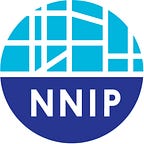Sparking Advocacy Movements with Data
by Jake Cowan and Leah Hendey
A publication of the Local Data for Equitable Communities Resource Hub
How do you start a tenant organizing movement? How do you build residents’ capacity to advocate for policies and investments to address housing instability in immigrant communities? How do you build a cohort of community scientists to fight environmental racism?
Residents are at the center of these questions — and when residents have the capacity to use data, they can make stronger cases for policy changes and investments that will improve their communities. Grantees of the Using Local Data to Address Structural Racism grant program have demonstrated this by building community data capacity and empowering community leaders to advocate for change.
Creating a tenant organizing movement
Albuquerque, New Mexico, has a long history of property owner–friendly laws and regulations that have contributed to unaffordability, housing instability, and poor living conditions — particularly for renters with low incomes and households of color. Despite this long history of instability and structural racism, the city had almost no history of tenant organizing. In 2023, Amparo, which offers housing assistance to prevent evictions, partnered with Organizers in the Land of Enchantment (OLE), a well-known community-based organization. Amparo and OLE, supported by resident canvassers, collected data from local renters through interviews and community events. Canvassers knocked on more than 15,000 doors and learned about the challenges tenants are facing, including rising rental costs, lease-up fees, and the poor condition of units. This galvanized energy for tenant organizing, and another foundation responded with grant support to hire a full-time community organizer. Residents have been sharing findings from the data by collaborating with local artists on a tenant-designed art gallery depicting their experiences as renters in Albuquerque. They will continue to organize and use what they learned from the data to advocate for policy changes that will improve conditions for renters across the city.
Developing resident capacity to advocate for greater housing stability
In Essex County, Massachusetts, Black and Latinx families experiencing poverty — particularly those with undocumented family members — have been forced to house multiple families in one apartment in response to high rental prices. The Essex County Community Organization (ECCO), a multifaith network of 59 congregations on Massachusetts’ North Shore, knew from their network that many undocumented immigrants rent their homes from landlords who are also immigrants. ECCO wanted to understand how challenges facing immigrant tenants and landlords alike are interconnected and how these groups could collaborate to advocate for aid to stabilize rents and rental income. ECCO used a participatory action research approach, wherein local Black and brown leaders who were directly affected by housing instability designed the research plan and worked as coresearchers throughout the project. They conducted interviews with landlords and are now working with ECCO to mobilize tenants of color and landlords who are immigrants to advocate for public funding to alleviate housing costs. Empowered with the research and advocacy skills they developed working with ECCO, the community leaders who led this research are also taking on new roles supporting other local housing research and advocacy initiatives.
Training community scientists to fight environmental racism
Environmental racism in the San Francisco Bay Area has disproportionately harmed residents of color for decades. The Bayview Hunters Point community, located in southeastern San Francisco, has the highest mortality rates, the lowest life expectancies, and higher than average rates of emergency room visits, hospitalizations, cancer, and asthma compared with the rest of the region. To address these disparities, Bayview Hunters Point Community Advocates developed a Community Toxic Index Program that trained residents to assess more than 300 neighborhood sites that have toxic environmental conditions. Working in teams, volunteers recorded their observations about these sites, including physical or sensory evidence of toxins (e.g., smells). Volunteers also conducted oral history interviews with nearby neighbors.
The new data are building a better understanding of environmental hazards in the neighborhood and at sites that, in many cases, have not been assessed in more than 15 years. Oral histories revealed the long-standing nature of environmental racism in the community, with some interviews documenting three generations of a family with the same health problems, such as asthma or cancer. The data and stories will be used to develop a campaign to advocate to government agencies and elected officials for the remediation of toxic sites. A key outcome of this project was the recruitment of a cohort of more than 50 volunteer community scientists who learned how to collect data about their community. Many of these volunteers are now engaging in other Bayview Hunters Point Community Advocates committees and initiatives. The capacity built through this project will serve the community for years to come, as these volunteers continue to collect data and use it to push for environmental justice.
Building residents’ data capacity supports advocacy efforts
Building the capacity of residents to collect, analyze, and apply data about the issues that directly affect them can support nascent organizing movements and strengthen existing ones in these communities. Residents were inspired by what they learned through engaging with data and seeing how they could use data to make the case for policy changes and resources in their communities. Importantly, they continued and expanded their involvement in advocacy activities beyond the life of these projects. Funders should consider supporting similar efforts to build data capacity among community members to support and grow local advocacy movements.
